Gentlemen Are Born

Brief Synopsis
Cast & Crew
Alfred E. Green
Franchot Tone
Jean Muir
Margaret Lindsay
Ann Dvorak
Ross Alexander
Film Details
Technical Specs

Synopsis
Four friends, Bob Bailey, Tom Martin, Smudge Casey and Fred Harper, are certain that upon their graduation from college, they will conquer the world. They face disappointment when they look for jobs, however. Because of the Depression, jobs are scarce and each one has many applicants. Fred goes to work for his father, a prominent stockbrocker. Eventually Bob, who intends to become a journalist, manages to sell occasional articles to the newspaper, and Tom also finds work. Smudge, a star athlete, unsuccessfully looks for work as a coach. Tom is in love with Trudy Talbot, who moves to New York to be near him. She shares a room with Susan Merrill, a librarian. Tom invites Bob to double date with him and Trudy, hoping that he will become interested in Susan, but Bob is in love with Fred's sister Joan, even though they are of different social classes. When Bob attends a boxing match on assignment from the paper, he sees Smudge fighting for a few dollars. Realizing that Smudge is broke, Susan and Bob invite him for Sunday breakfast. Soon Susan and Smudge fall in love. Shortly after, Tom and Trudy marry, as do Susan and Smudge. Joan and Bob date despite her mother's wishes that she only go out with men of her class. Smudge is fired from his job as a truck driver because there is not enough work and Susan loses her job because she is married. Meanwhile, Tom and Trudy have a baby. Mr. Harper, Joan's father, is implicated in a trust failure and kills himself, leaving his family in reduced circumstances. For this reason, Joan decides to accept a proposal from wealthy Stephen Hornblow, even though she is in love with Bob. Completely desperate, Smudge robs a pawnshop of ten dollars in order to buy food and he is shot running away. Bob keeps his identity out of the papers and Susan returns to her parents. When Joan meets Bob at Tom and Trudy's, where they have gone to visit the new baby, she confesses that she is not going to give up her life to support her family. Instead she will follow her heart and marry Bob.

Director
Alfred E. Green
Cast

Franchot Tone

Jean Muir

Margaret Lindsay

Ann Dvorak

Ross Alexander

Dick Foran
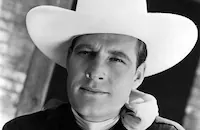
Charles Starrett

Russell Hicks
Robert Light

Addison Richards
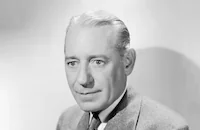
Henry O'neill
Arthur Aylesworth

Marjorie Gateson

Bradley Page
Eddie Sturgis
Carlyle Blackwell Jr.
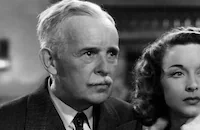
Howard Hickman
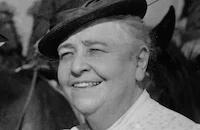
Jane Darwell

Joseph Crehan
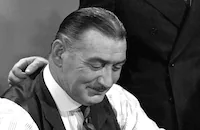
Edward Keane
John Hale
Brandon Beach

Paul Panzer
Herbert Heyward
Cliff Saum
Edward Mosbar
George Humbert
Nina Campana
Virginia Howell
Leo White
Maude Turner Gordon
James Burtis
Joseph North
Eddie Shubert
Frank Dawson
Alice Marr
Florence Fair
Eddy Chandler

Edward Mcwade
John H. Elliott
Bert Moorhouse
Harry Seymour
Crew
Edward Chodorov
Sammy Fain
Leo F. Forbstein
Robert Haas
Robert Lee Johnson
Robert Lee Johnson
Irving Kahal
Herbert Levy
Orry-kelly
Russ Saunders
Eugene Solow
James Van Trees
Jack L. Warner

Film Details
Technical Specs

Articles
Gentlemen Are Born
A jovial group of four buddies led by aspiring journalist Bob Bailey (Franchot Tone) on varying career paths head to the big city post-graduation to seek their fortunes. Aspiring journalist Bob starts at the very bottom as a freelance newspaper reporter but soon distinguishes himself in his field and wins the affection of pretty socialite Joan Harper (Margaret Lindsay), sister of Bob's best friend Fred (Robert Light). Joan's relationship with Bob infuriates her mother Mrs. Harper (Marjorie Gateson) who sees him as socially inferior to her daughter. Smudge Casey (Nick Foran) is the amiable jock of the group whose all-star football career in college has made him certain he can secure a job as a coach. Instead, the luckless, lovable Smudge is pushed into a dispiriting and ruinous career as a penny-ante boxer getting beat up for a living until he is pushed into committing a disastrous crime. He falls in love with librarian Susan Merrill (Ann Dvorak), who does her best to support and encourage the hard-luck former athlete. But Susan faces her own tribulations when she is abruptly fired from her library job because of her marriage to Smudge and the library's policy of reserving jobs for single women. Fred Harper, who worships his stockbroker father, enters the family business but finds shame and horror when his father is implicated in bad business practices and jumps from a high-rise window. Tom Martin (Ross Alexander) is the fourth friend in the group with the simple ambition of domestic bliss with his long-time sweetheart Trudy Talbot (Jean Muir).
Graced with winning performances and a gritty theme, Gentlemen Are Born was nevertheless found wanting by The New York Times critic Andre Sennwald who found the film's aspirations bigger than its outcome, noting "Gentlemen Are Born has the ineffectual air of a drama which has bit off more than it is prepared to chew."
Cinema historian William K. Everson, according to writer Hal Erickson, had a better bead on the film calling Gentlemen Are Born a precursor to Mary McCarthy's influential, best-selling 1963 novel The Group which detailed the lives--both personal and professional--of eight female friends following their graduation from Vassar College.
Gentlemen Are Born was directed by the prolific Alfred E. Green who rose through the ranks in Hollywood from actor to assistant director to Colin Campbell (The Garden of Allah, 1916) to feature director on a variety of diverse projects. Though he was mostly known for routine fare, Green distinguished himself by directing Bette Davis in her Academy Award winning performance in Dangerous (1935) one year after Gentlemen Are Born and enjoyed another critical and commercial win with The Jolson Story (1946).
The daughter of silent movie actress Anna Lehr and director Edwin McKim, Ann Dvorak began in show business as an assistant dance instructor in MGM musicals. Her father disappeared following a divorce when Ann was a child and did not resurface until a national publicity campaign reunited the father and daughter in 1934. Dvorak appeared most notably in Howard Hawks' Scarface (1932) beside Paul Muni when the actress was just 19, a role for which she reportedly made $250 a week. Often at odds with her Warner Brothers employers over salary issues and inferior roles, Dvorak attempted to end her contract with the studio when she found out that the child actor who played her son in Three on a Match (1932) -- also starring Bette Davis and Joan Blondell -- was paid the same fee as Dvorak. Dvorak finally left Warner in 1936 after a long battle with the studio over her casting in second-tier productions. Dvorak eventually migrated to Britain with her husband, actor Leslie Fenton, who she met on the set of the Michael Curtiz film The Strange Love of Molly Louvain (1932). She made several films in Britain and contributed to the war effort as an ambulance driver, a newspaper columnist and a BBC broadcaster.
Director: Alfred E. Green
Producer: Edward Chodorov
Screenplay: Adapted by Robert Lee Johnson and Eugene Solow from a story by Robert Lee Johnson.
Cinematography: James Van Trees
Music: Heinz Roemheld
Cast: Bob Bailey (Franchot Tone), Trudy Talbot (Jean Muir), Joan Harper (Margaret Lindsay), Susan Merrill (Ann Dvorak), Tom Martin (Ross Alexander), Smudge Casey (Dick Foran, as Nick Foran), Stephen Hornblow (Charles Starrett), Editor (Russell Hicks), Fred Harper (Robert Light), Martinson (Addison Richards), Mr. Harper (Henry O'Neill), Mr. Gillespie (Arthur Aylesworth), Mrs. Harper (Marjorie Gateson), Al (Bradley Page).
BW-74m.
by Felicia Feaster

Gentlemen Are Born
Quotes
Trivia
Notes
The film's pre-release title was Just Out of College. A news item in Daily Variety notes that Warner Bros. was sued for $250,000 by Ronald Wagoner and James F. Wickizer who contended that the film was based on their story "Yesterday's Heroes."
















